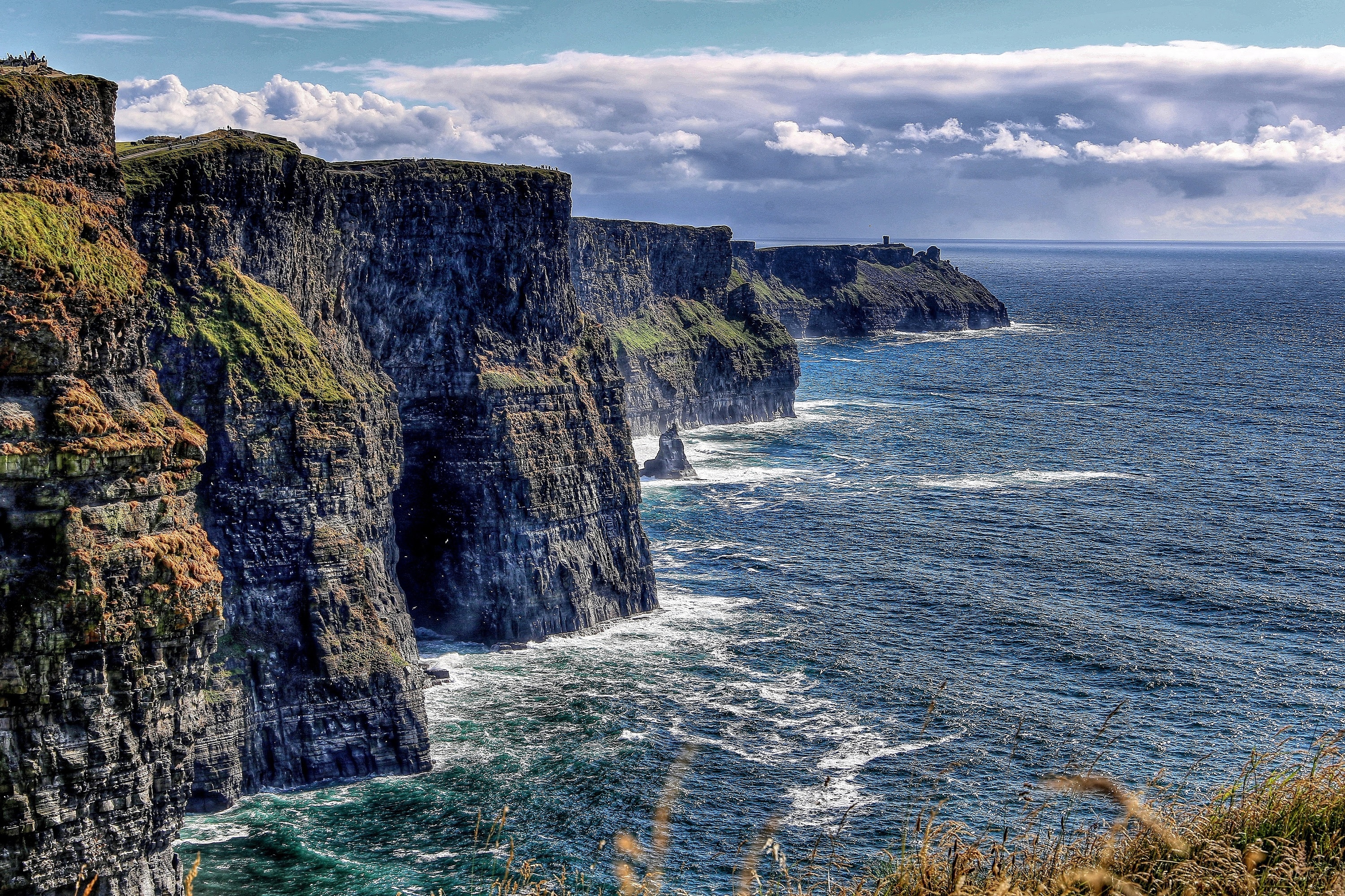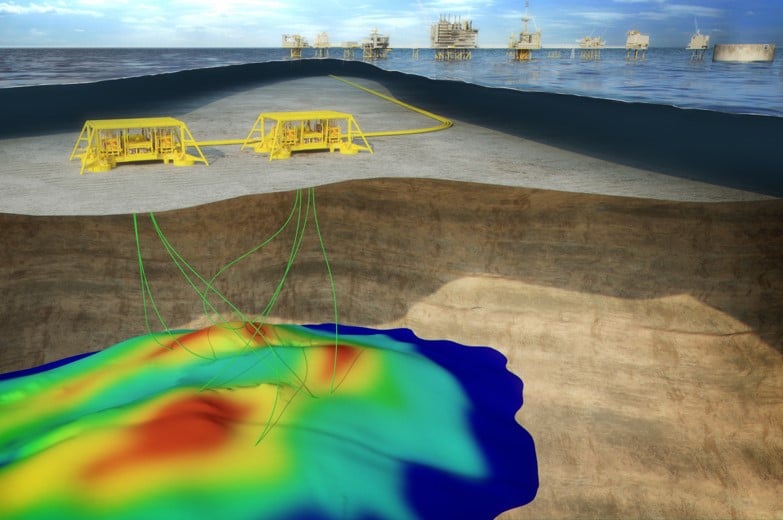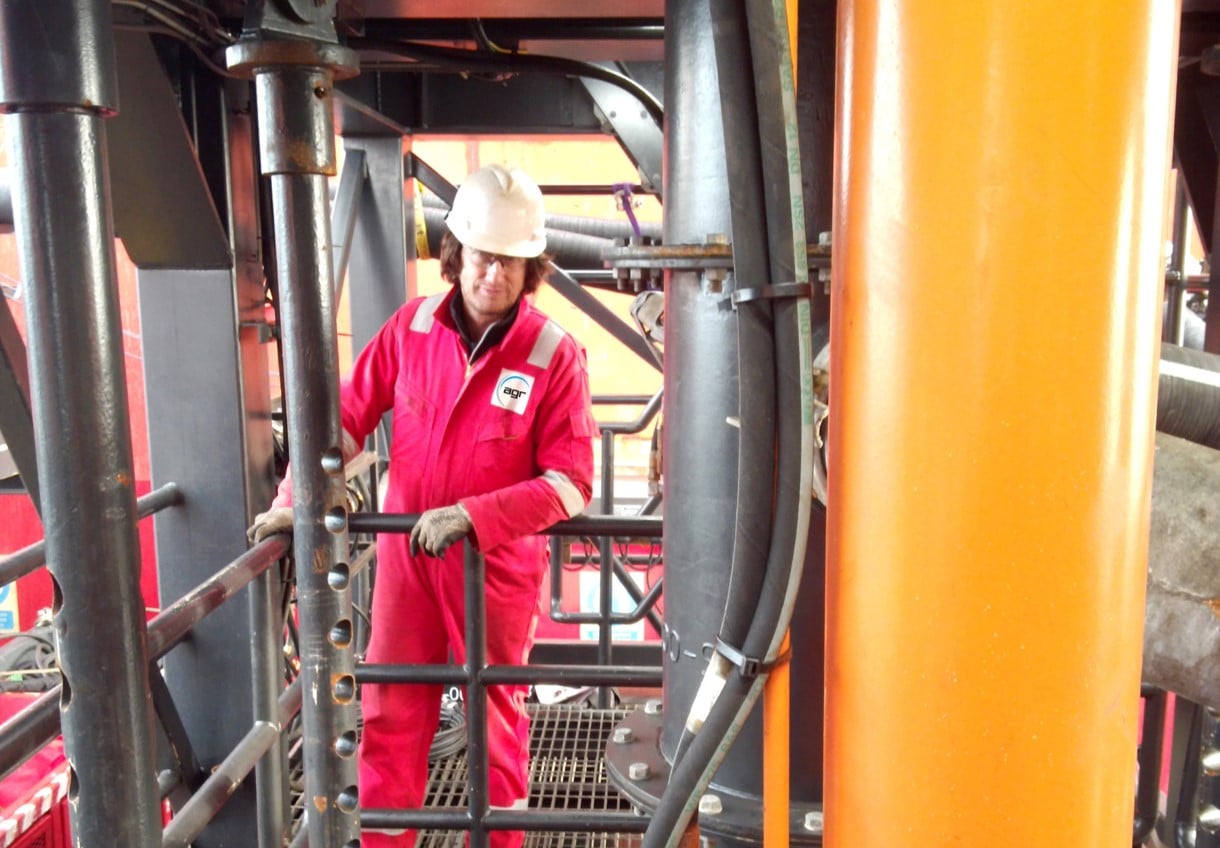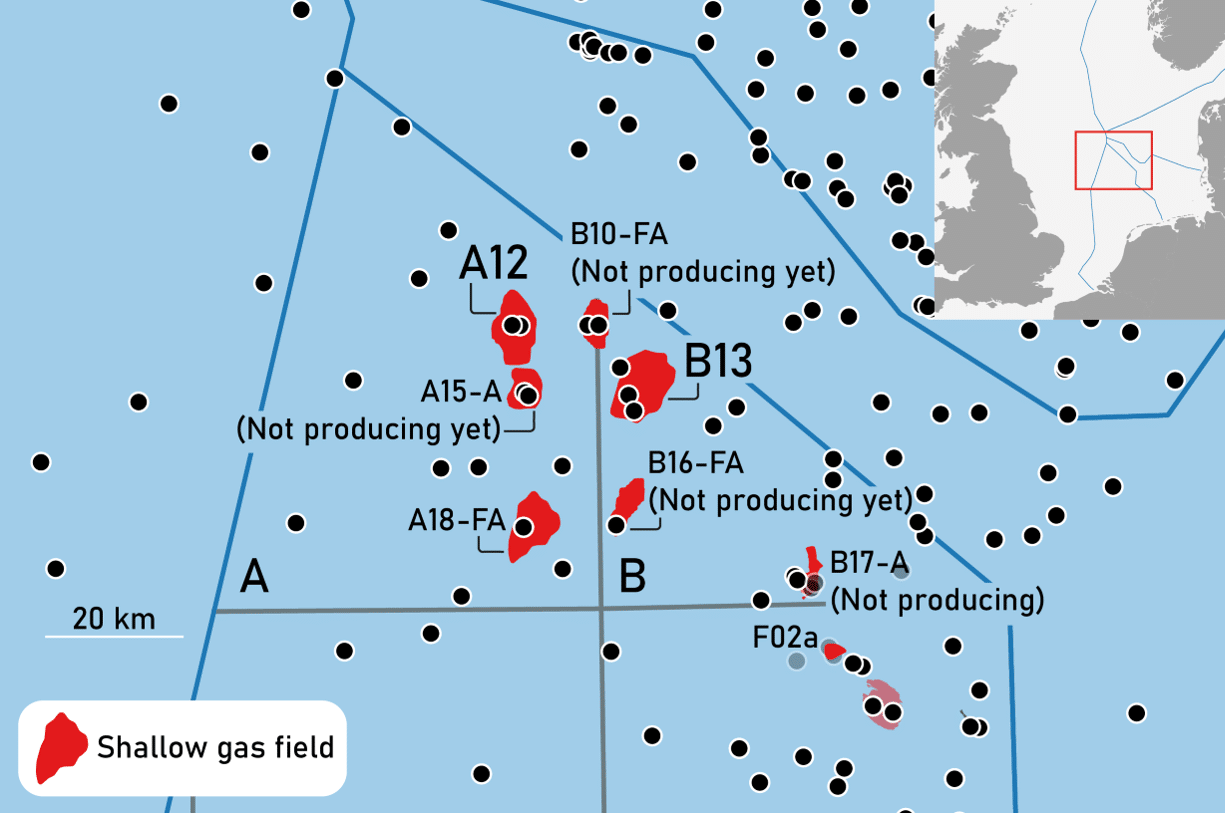New licensing terms in 2014 led to increased interest in offshore Ireland: More oil companies entered the Irish sector, exploration teams grew, several seismic surveys were undertaken, hopes were high to find prospective areas on the Atlantic Margin, in the Porcupine and the Rockall basins, and the annual Atlantic Ireland conference became a key event to attend for the entire exploration community. Then, something changed.
Some 15 discoveries – altogether
Exploration for oil and gas in Ireland began in the late 1960’s, when Marathon was awarded rights to explore in all Irish shallow waters. The first exploration well was drilled in 1970 and the first discovery was Kinsale Head in the Celtic Sea Basin in 1971. The gas field came onstream in 1978 with recoverable reserves estimated at 1.65 Tcf (270 MMboe). A total of 160 exploration and appraisal wells have been drilled in the Irish offshore. There have been four commercial gas discoveries, all in the Celtic Sea Basin, while there are three discoveries in the Porcupine Basins. In addition, there have been approximately 11 key oil, gas and condensate discoveries but none have yet led to commercial developments. In contrast, more than 4,000 wells have been drilled in the UK offshore (resulting in more than 350 producing oil and fields), with more than 1200 wells drilled in the Norwegian offshore. Source: IOOA
Why, and when
A sea change in Irish politics has seen the country governed by a minority Government for three and a half years, supported by the main opposition party. Recent opinion polls show a General Election will deliver a similar result. This has put smaller parties, including the Green Party on 7%, in play as kingmakers.
According to the Irish Offshore Operators’ Association (IOOA), the focus on green issues has seen an Irish offshore sector, which has provided up to 80% of Ireland’s energy for four decades, at the centre of a political tug of war. This has led to two years of uncertainty which the sector is now combatting through its representative body, the IOOA.
Gas, not oil
The 11th Atlantic Ireland conference took place in Dublin, October 29-30, and as usual, the Minister of State (DCCAE) Sean Canney TD[1] was the 1st speaker of the conference.
The Minister informed the audience that Ireland should continue to explore for gas, not for oil. The Minister said he appreciates stimulation is needed for exploration, talked about research initiatives and mentioned the environmental impact, and concluded that “we are in a transition period and we work to provide certainty for the oil and gas industry”.
It does not seem like the oil companies and other related parties feel any certainty and stability as of today. The number of conference delegates had gone from 380 to less than 300, the conference hotel seemed very quiet compared to earlier years, people were questioning what the conference takings would be, most oil companies no longer had stands, their number of delegates were reduced to a minimum, and a large part of the exhibition area was filled up by poster walls instead. Some attendants were recently made redundant from their exploration team. To top it all, an environmental activist made her way into the conference hall, interrupting and yelling at the Minister during his talk, before being escorted out, soon joined by approx. 20 activists to continue their actions.

Source: Department of Communications, Climate Action & Environment of Ireland.

Source: Department of Communications, Climate Action & Environment of Ireland.

Source: Department of Communications, Climate Action & Environment of Ireland.
No more oil exploration
Following the advice received from the Climate Change Advisory Council on what the future of oil and natural gas offshore exploration should be, during the shift away from oil combustion within heat and transport sectors towards renewables in the coming decade, in the context of the Climate Action Plan (published by the Government, June 17, 2019), Minister Seán Canney confirmed by a public Announcement on October 30 the policy principles which underpins to cease new exploration for oil offshore Ireland:
“Gas is considered to be a transition fuel. This is particularly the case for Ireland, where we do not have nuclear power, hydro power at scale or geothermal power, which other countries can use to provide back-up when the wind isn’t blowing, and the sun isn’t shining. Therefore, it appears that gas, as the lowest emitting fossil fuel, will provide the best electricity back-up in 2030 when we reach 70% renewable electricity. The Minister will commission an Energy Sustainability and Security Review which will consider the role of fossil fuels during the transition. It will also consider the role that other technologies can play.”
According to Minister Canney, this implies that a) All future licencing rounds in the currently closed area offshore (Atlantic Margin – 80%) will be for natural gas only and not oil, b) All new licence applications in the currently open area (Celtic Sea, Irish Sea, coastal areas – 20%) will be for natural gas only and not oil, applicable from the day of the Taoiseach and Minister Bruton’s announcement on 23 September 2019, and c) All applications and authorisations in place prior to the announcement was made will not be affected by the decision.
Minister Canney also stated that the above is “consistent with the Climate Action Plan, putting Ireland on a trajectory to meet our 2030 target for carbon emissions, which is consistent with achieving net zero carbon emissions by 2050.”
Fear should not rule
Going back to this year’s Atlantic Ireland conference, Clare Morgan, Head of Petroleum Affairs Division (PAD), confirmed in her presentation on the exploration status that there are currently 34 exploration licenses offshore Ireland. With only 20% of the offshore area open for exploration, Ireland is clearly underexplored, also behind Denmark, in Morgan’s comparison with other European sectors.
There has been no commercial discoveries offshore Ireland so far. Only 3 wells have been drilled in the Porcupine Basin during the past 17 years, all of them dry, the last one by CNOOC during the 2019 season. The number of exploration licenses has increased, while the seismic acquisition and search for better data has decreased. No new 2D or 3D acquisition has been undertaken during 2019.
Mandy Johnston, CEO of the IOOA, had the best talk prior to the geological and environmentally focused presentations. You could hear a pin drop in the conference hall while she was speaking on behalf of the 13 members of IOOA, claiming stopping exploration for oil offshore Ireland now is a “fact-free solution, leading to distress and demotivation.” Johnston strongly believes that the operators are capable to move on to a sustainable industry while exploring for both oil and gas.
Johnston said that we cannot ignore that climate changes exist, but at the same time we cannot allow the fear of these changes to rule and stop exploration. Global warming is not the only global challenge, she believes we have a pandemic fear of oil industry based on lack of correct information.

Current licenses are secure
Johnston wants everyone involved to work together for a sustainable industry. IOOA has been working to refocus the debate away from offshore bans, which run the serious danger of increasing Ireland’s carbon emissions, towards energy transition and energy security.
Politically there has been progress with the Government’s recently published Climate Action Plan recognizing the key role of gas as a transition fuel. On the day Johnston was speaking, the Government also actively moved to provide clarity to the sector that whatever future policies may be adopted that all current exploration licenses are secure. While the commitment to future gas exploration remains.
Long term planning needed
Public research carried out by IOOA also shows the public are worried about energy supply when Brexit cuts Ireland from the EU energy networks. 58% are worried about supply post Brexit while 71% agree it’s better for Ireland to have its own natural gas rather than import via Britain.
Johnston says a debate on energy in Ireland is overdue and welcomes the commitment of the Government to carry out an Independent Review of Energy Security in 2020. In line with her call for the sector to be active in public debate, she anticipates IOOA and its members will contribute to that review.
IOOA believes Ireland can only meet the challenges of climate change and energy security through transparent cooperation between the oil industry and regulators related to the transition. Johnston asked for confidence and certainty in the future and said; “we simply ask for long term planning possibilities for resources and investments.”

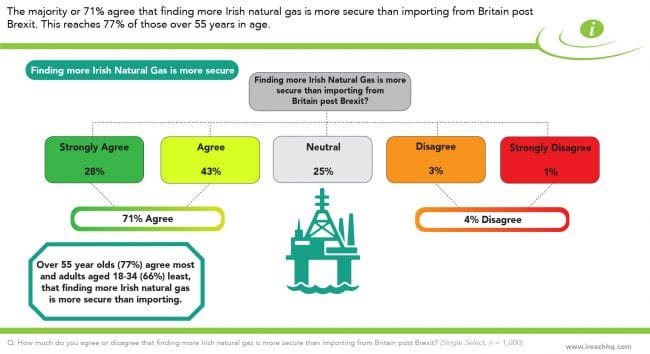
Downgrading geoscience and technology
The recognition of natural gas as a key transition fuel for Ireland has given hope to an exploration sector that has come through two years of uncertainty. As outlined by the Conference Speech by the Johnston (IOOA), she anticipates that they will be playing an active role in the public, media and political debate to ensure future policies are based on facts, science, and evidence.
Is it a problem that only one minister is heading both the environment, the climate, oil & gas exploration, and energy at once? In comparison, in Norway and the UK, these areas of responsibility are shared between several ministers and departments and such conflicts of interest are hence avoided. As former Government Press Secretary to the Irish Government, Mandy Johnston says she can see how conflict would arise in having environment, climate, and energy under one Department.
Is it naive to think that the authorities are “allowing” the environmental activists to rule over them? There is for example no promotion of the Atlantic Ireland conference because it is important to keep a low profile.
The next general election might give some hope for the exploration community. While one party wants to continue oil exploration, the other one not, the election might change it all, although the green side is strong as of today.
Finally, what will Brexit mean for Ireland? How will Brexit affect the general opinion and the future for oil exploration? This remains to be seen.
No matter what, it is worrying – if it is the truth – that in an industry that is very dependent on technological development, know-how on environmental issues and how to tackle these, has become more important than expertise within geophysics and geology.
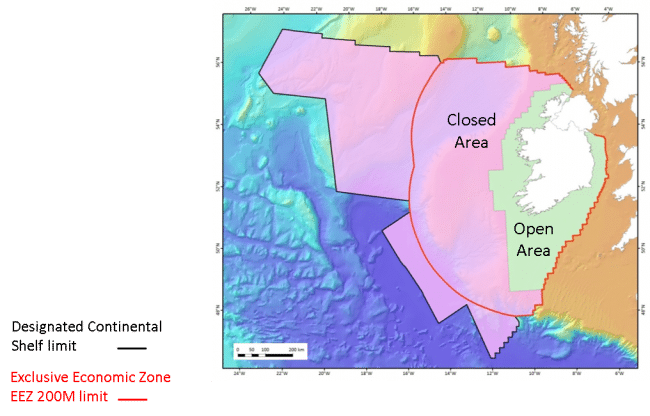
Source: Department of Communications, Climate Action & Environment of Ireland.
[1] TD stands for Teachta Dála. A TD is a member of Dáil Éireann, the lower house of the Oireachtas (the Irish Parliament). It is the equivalent of terms such as Member of Parliament (MP). The official translation of the term is ‘Deputy to the Dáil’.
TORIL LEITE

